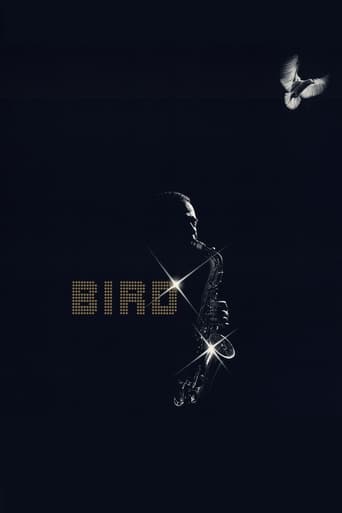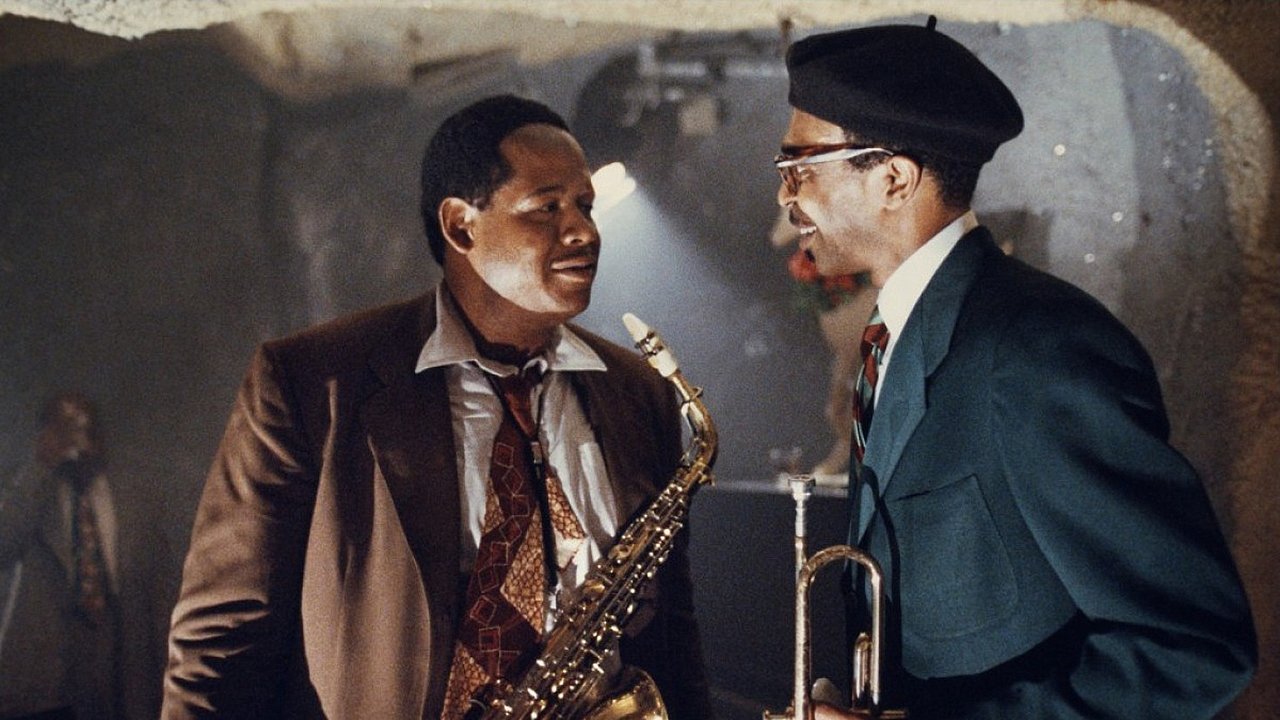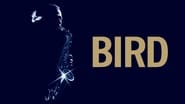MartinHafer
Charlie Parker was one of the most famous musicians of the Be Bop era of Jazz. On the other hand, while incredibly talented, he was a very self-destructive man...and one with many shortcomings. Because of this, it's not an enjoyable film. Well made, certainly, but not enjoyable. The man was a horrible husband who slept around and ultimately drank and drug himself to death.The film follows Parker mostly through his adult life and tends to focus around his screwing up--such as his suicide attempt, drug and alcohol abuse and his odd and rocky relationship with his common-law wife, Chan. He was already married and apparently had other women he referred to as his wives. Ultimately, the viewer knows that Parker will die...but it takes two hours and forty minutes to get there. Along the way, the movie is incredibly well made by director Clint Eastwood and Forest Whitaker is excellent in the lead. It's about as good a bio you can do on this tremendously screwed up and self-destructive man.
Philip Hogan (Kurtz9791)
Biographies are a hard genre to capture on film. Books can give layers upon layers of detail into someone's life, based on multiple perspectives. And even documentaries have more of an opportunity through interviews and archive footage to establish a person's background and contributions to their art form. But how do you honorably condense a person's life down to the standards of conventional cinema, especially if that person was as unconventional as Jazz icon Charlie Parker? Clint Eastwood's "Bird" opens with a quote from F. Scott Fitzgerald, "There are no second acts in American lives." After a brief scene with no dialogue depicting Parker's childhood in Kansas City, the film flashes forward to a suicide attempt about six months before his actual death in 1955. This opening sequence establishes the tone of the film, depicting the complicated relationship between Parker and his common law wife, his drug addiction, and the music that he gave to the world. It is from this point that the film takes an interesting approach, telling most of its story in episodic flashbacks, floating around through different time periods, and even the occasional flashback within another flashback, further playing with the idea of time and memory. It is through this nonlinear approach that the film most resembles the art form that it is representing."Bird" mostly depicts Parker's life with his common law wife Chan Parker and his relationship to musicians Dizzy Gillespie and Red Rodney, all of whom gave their input during the production process. Chan, whose unpublished memoirs heavily influenced the screenplay, provided Eastwood with rare live recordings of Parker for the film. One of the movie's greatest accomplishments is its detail to the time period. In one of the film's most remarkable moments, the camera in one long take follows a club doorman up and down 52nd Street, making you feel like you are in the 1940s world of Bebop. You practically get lost in the darkly lit nightclub scenes with the air full of smoke and music.The two lead performances are extremely captivating. Forest Whitaker balances several different moods in his portrayal as Bird, conveying how charming and interesting he was to the outside world while also showcasing the pitfalls of drug addiction, and how it eventually made him an unreliable performer. He also does a convincing job at mimicking Parker's stage presence, especially his ability to improvise on the saxophone. Equal praise must go to Diane Verona as Parker's companion later in the life, establishing a cool persona in the early days of their relationship, and an overbearing sadness during its final months. The scene depicting their last phone conversation, with Verona trying so hard to mask her awareness of what's happening and eventually breaking down is heartbreaking.Still, with its Jazz-like approach to the narrative, "Bird" comes off as slightly overlong. It is still filled with nice moments and wonderful scenes. When touring in L.A., Bird stops outside the house of Igor Stravinsky, where the two geniuses stare at each other from a distance. This is juxtaposed nicely with an early scene of Parker and Chan's courtship, dancing in a fancy club with white Jazz musicians who stop playing because they recognize the legend in front of them, perhaps embarrassed by the second rate compositions they're playing. What might be the film's best scene comes near the end with Gillespie and Parker on a beach at night. The former tells the latter that while he's trying to be a progressive, Parker is too busy trying to be a martyr. "People always seem to remember the martyr more," Gillespie laments. Oh how right he was!
writers_reign
It's been claimed that this is the Best film about Jazz ever made and whilst the glib response may be yeah, maybe, but how MANY films about Jazz have been made, the tendency is to agree. What is undeniable is the fact that director Eastwood - a well-known jazz buff - has not been content with the four-bar taste of the music then cutting away from the band to a dialogue scene approach which is what fans usually get fobbed off with, here we actually are allowed to savour (assuming, of course, the music is our prime reason for watching the film) not only the genius of Parker but also the music scene as it existed roughly between 1945-55 and though he isn't named aficionados will know it was Jo Jones who threw the cymbal at Parker to register disgust. 52nd St - known as Swing Street - has also been lovingly recreated so already we have accumulated a host of positives, throw in the remarkable lead performance from Forest Whitaker and we are talking great movie.
aerslife
I feel as though the film did not do justice to the musically phenomenal life "Bird" went through. He was one of the most influential Jazz musicians crating an entire style of music. Which i felt was not portrayed fully. As one of the comments i've heard before stated "it seemed they had a choice between Charlie Parker as a musical genius or Charlie Parker as a junkie and they chose junkie."I felt as though the musicians playing the bird solo's did a bad job reflecting his "sound." As in Charlie Parker had a sound that filled up an entire room with complicated be-bop phrasings and with a blues background. While the musicians just had him playing fast notes most of the time which was sometimes difficult to hear over back ground noise, very "unbird like".However i did enjoy moments of the film, that showed even Charlie Parker had to play some weird gigs.My last point is that it felt as though Chan Parker was portrayed as a stable part of bird's life, and was one of the central idea's of the film. As in the love story between him and his wife, with a love hate relationship. Which i think could have been less focused on and centralized more around Charlie Parkers music.i do understand that Chan actually helped the script writer to write the film so it may have been a somewhat biased perspective.



 AD
AD







